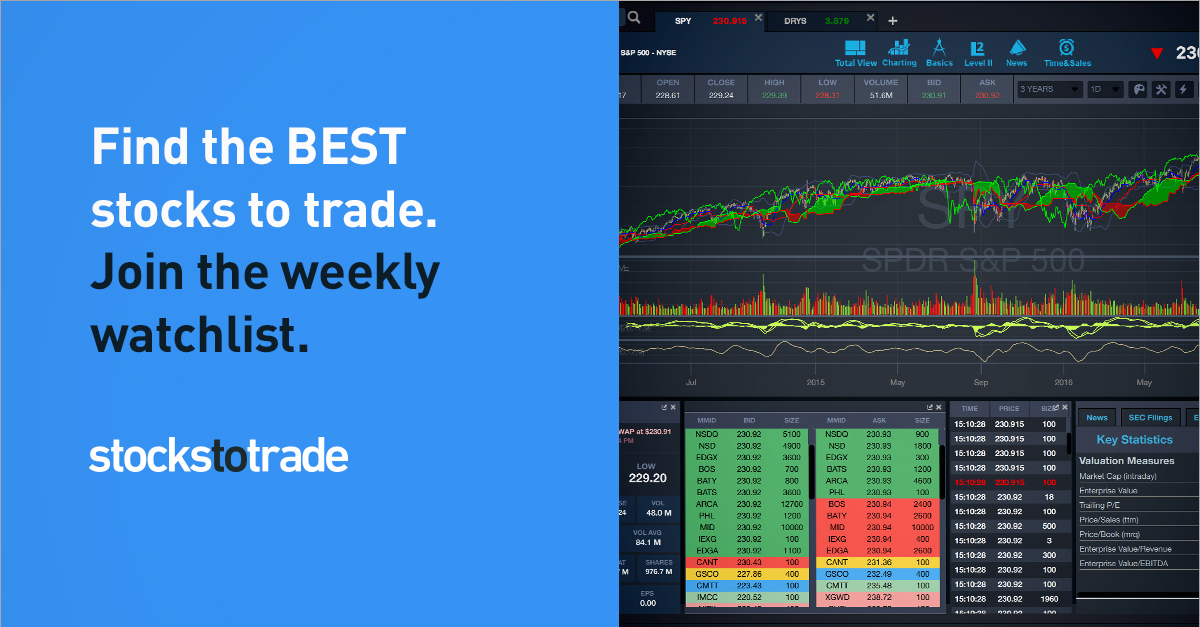
The Psychology of Winning Trades
The Mind-Body Connection in Trading
The psychology of trading plays a crucial role in the success of traders. Understanding and mastering the mind game can make a significant difference in achieving consistent winning trades. Here are some key points to consider:
- Emotional Discipline: Keeping emotions in check is essential for making rational trading decisions. Emotional discipline helps traders avoid impulsive actions driven by fear or greed.
- Self-Awareness: Being aware of one’s strengths, weaknesses, and biases allows traders to make informed decisions that align with their trading style.
- Risk Management: Having a clear risk management strategy helps traders control losses and protect capital, reducing emotional stress.
- Positive Mindset: Cultivating a positive mindset helps traders stay focused, motivated, and resilient in the face of challenges and setbacks.
- Continuous Learning: Learning from past trades, keeping up with market trends, and seeking feedback from experienced traders can enhance trading skills and improve performance.
By understanding and addressing the psychological aspects of trading, traders can develop the necessary mindset and

Emotional Intelligence in Trading
Managing Emotions During Winning Trades
When it comes to trading, emotional intelligence plays a vital role in making sound decisions and maintaining consistent success. Here are some tips for managing emotions during winning trades:
1. Stay grounded: It’s important to stay level-headed and not let the excitement of a winning trade cloud your judgment. Remember that success in trading is a result of analysis and strategy.
2. Avoid impulsive decisions: Winning trades can sometimes lead to overconfidence and the temptation to take unnecessary risks. Stick to your trading plan and avoid making impulsive decisions based on short-term success.
3. Practice gratitude: Instead of dwelling on past successes, focus on being grateful for the opportunities and achievements you have experienced. This mindset helps maintain a positive outlook and prevents complacency.
Dealing with Fear and Greed
Fear and greed are two common emotions that can significantly impact your trading decisions. Here are strategies for managing these emotions:
1. Recognize the emotions: Acknowledge when fear or greed is influencing your decisions. Being aware of these emotions allows you to take steps to counteract their negative effects.
2. Focus on risk management: Implement proper risk management strategies to protect your capital and minimize the impact of fear and greed. This includes setting stop-loss orders and having a disciplined approach to position sizing.
3. Stick to your trading plan: Having a well-defined trading plan and sticking to it helps keep emotions in check. Trust the plan you have developed and make decisions based on your analysis rather than emotions.
By mastering emotional intelligence and effectively managing your emotions, you can ensure that winning trades are not only profitable but also contribute to long-term success in trading.

Cognitive Biases and Decision-Making
Understanding the role of cognitive biases in trading is crucial for making informed and rational decisions. Cognitive biases refers to the systematic errors in thinking that can affect judgment and decision-making. Here are some common cognitive biases in trading:
1. Confirmation Bias: The tendency to seek out information that confirms our preexisting beliefs and ignore evidence that contradicts them.
2. Overconfidence Bias: The belief that our abilities and judgments are better than they actually are, leading to overestimating potential profits and taking on excessive risks.
3. Loss Aversion Bias: The tendency to strongly prefer avoiding losses over acquiring equivalent gains, leading to holding onto losing trades for too long.
4. Anchoring Bias: The reliance on initial information (anchor) when making decisions, without sufficiently adjusting for new information.
To overcome these cognitive biases and improve decision-making in trading, consider the following strategies:
• Rely on Data and Analysis: Base your decisions on objective data and thorough analysis, rather than relying solely on emotions or gut instincts.
• Keep a Trading Journal: Record your trades, emotions, and thought processes in a journal to identify patterns and learn from past mistakes.
• Seek Diverse Perspectives: Surround yourself with a network of traders or seek professional advice to gain different perspectives and challenge your biases.
• Take Breaks and Control Emotions: Take regular breaks and practice relaxation techniques to manage stress and prevent impulsive decision-making.
By recognizing and addressing cognitive biases, traders can make better decisions and improve their overall performance in the market.

Developing a Winning Mindset
Setting Realistic Goals
To develop a winning mindset in trading, it is essential to set realistic goals that align with your skills and resources. Here are some tips to help you set realistic goals:
1. Start Small: Begin with small achievable goals that you can easily track and measure. This will build confidence and momentum as you accomplish them.
2. Be Specific: Clearly define your goals and make them measurable. For example, instead of setting a general goal like “make a profit,” specify a target percentage or a specific amount of money you want to achieve.
3. Consider Timeframe: Determine a realistic timeframe to achieve your goals. It’s important to be patient and understand that trading success takes time.
Building Confidence and Discipline
Building confidence and discipline are crucial aspects of developing a winning mindset in trading. Here are some strategies to help you strengthen these qualities:
1. Education and Knowledge: Continuously educate yourself about the markets, trading strategies, and risk management. This knowledge will boost your confidence and help you make informed trading decisions.
2. Learn from Mistakes: Embrace mistakes as learning opportunities and avoid dwelling on losses. Instead, analyze your trades, understand what went wrong, and learn how to avoid similar mistakes in the future.
3. Stick to Your Trading Plan: Develop a well-defined trading plan and stick to it. This will help you stay disciplined, manage emotions, and avoid impulsive decisions.
4. Practice Patience: Understand that trading is a long-term game, and success does not happen overnight. Be patient and avoid chasing quick profits or making impulsive trades.
By setting realistic goals and building confidence and discipline, you can develop a winning mindset that will positively impact your trading performance.

Risk Management and Mental Game
Controlling Impulsiveness and Overtrading
To be a successful trader, it’s crucial to control impulsiveness and avoid overtrading. Here are some tips to help you master the mental game:
- Create a trading plan: Having a well-defined trading plan will help you stay disciplined and avoid impulsive decisions based on emotions.
- Set realistic goals: Set realistic and achievable goals for each trade, and stick to your plan. Don’t get tempted to deviate from your strategy based on short-term fluctuations.
- Practice patience: Patience is key in trading. Avoid rushing into trades and wait for the right opportunities that align with your strategy.
- Monitor your emotions: Be aware of your emotions and how they can impact your decision-making. If you find yourself feeling overly excited or anxious, take a step back and reassess before making any trades.
Managing Losses and Bouncing Back
Losses are a part of trading, but how you manage them can impact your overall success. Here’s how to bounce back from losses:
- Accept the loss: Acknowledge that losses are a natural part of trading and accept them as learning opportunities.
- Review and learn: Take the time to review your losing trades and analyze what went wrong. Learn from your mistakes and adjust your strategy accordingly.
- Stick to your risk management plan: Implement strict risk management practices to limit your losses and protect your capital. This will help you bounce back from losses and prevent them from derailing your overall trading performance.
- Maintain a positive mindset: Stay optimistic and maintain a positive mindset even in the face of losses. Remember that trading is a long-term game, and setbacks are temporary.
By focusing on risk management and maintaining a strong mental game, you can enhance your trading performance and increase your chances of success.

Psychology of Market Trends
Understanding Market Psychology
Market psychology refers to the collective mentality and emotions of traders and investors that drive market movements. Understanding market psychology is crucial for successful trading. Here are key points to consider:
- Herd Mentality: Traders often follow the crowd, leading to trends and momentum in the market. This can create profitable opportunities or foster market bubbles.
- Greed and Fear: These emotions play a significant role in influencing trader behavior. Greed can lead to irrational exuberance, while fear can drive panic selling.
- Confirmation Bias: Traders tend to seek evidence that aligns with their existing beliefs, often ignoring contradictory information.
- Market Sentiment: The overall sentiment of market participants can impact price movements and provide valuable insights into future trends.
Utilizing Behavioral Analysis in Trading
Behavioral analysis involves studying the psychological factors that influence market participants. Here’s how you can apply it to your trading strategy:
- Self-Awareness: Recognize your own biases and emotions to make more rational decisions.
- Pattern Recognition: Look for recurring patterns and market signals to predict potential price movements.
- Contrarian Approach: Going against the herd can be profitable if you can identify market extremes.
- Risk Management: Understanding market psychology can help you set appropriate risk management strategies and avoid emotional decision-making.
- Continual Learning: Stay updated with market news, trends, and psychological studies to enhance your trading skills.
By understanding market psychology and integrating behavioral analysis into your trading strategy, you can gain an edge in the market and improve your chances of success. You might also want to read on How to Identify and Analyze Market Trends for Profitable Trading

Mindfulness and Trading
The Role of Mindfulness in Trading
Mindfulness plays a crucial role in trading. It involves being fully present in the moment and aware of one’s thoughts, emotions, and actions. By practicing mindfulness, traders can develop a clear and focused mindset that allows them to make better decisions and manage their emotions effectively. Here are some ways in which mindfulness can benefit traders:
- Enhanced Focus: Mindfulness helps traders stay present and focused on essential information, allowing them to avoid distractions and make more informed trading decisions.
- Reduced Stress: Mindfulness techniques, such as deep breathing and meditation, can help traders manage stress and anxiety associated with trading, leading to better emotional regulation.
- Improved Decision-Making: By being fully aware of their thoughts and emotions, traders can make more rational and logical decisions, reducing the likelihood of impulsive and irrational trading behaviors.
Practicing Mindfulness Techniques for Better Trading Performance
To incorporate mindfulness into trading, traders can consider the following techniques:
- Meditation: Set aside a few minutes each day to practice meditation, focusing on your breath or a specific object, to cultivate calmness and improve mental clarity.
- Journaling: Maintain a trading journal to reflect on your thoughts, emotions, and trading strategies. This can help identify patterns, strengths, and areas for improvement.
- Visualization: Use visualization techniques to imagine successful trades and positive outcomes, helping to build confidence and focus.
- Take Breaks: Incorporate short breaks into your trading routine to engage in mindful activities such as stretching, deep breathing, or walking, allowing you to recharge and refocus.
By incorporating mindfulness techniques into your trading routine, you can develop a resilient mindset, manage emotions effectively, and make better trading decisions.

Seeking Professional Help
Recognizing the Need for Professional Support
Sometimes, it’s important to admit when you need professional help. When it comes to trading psychology, seeking support from a professional can be incredibly valuable. Here are some signs that indicate you may benefit from professional assistance:
1. Consistent Emotional Distress: If you find yourself constantly experiencing extreme emotional highs and lows due to your trades, it may be time to seek help.
2. Inability to Stick to a Trading Plan: Struggling to follow your trading plan and constantly making impulsive decisions can be a red flag that you need professional guidance.
3. Fear or Anxiety Taking Over: If fear or anxiety is consistently preventing you from executing trades or causing you to make irrational decisions, help from a professional can make a significant difference.
Benefits of Coaching and Therapy in Trading Psychology
Working with a trading psychology coach or therapist can provide several benefits:
1. Objective Perspective: A professional can provide an unbiased and objective perspective on your trading habits, helping you identify patterns and behaviors that may be holding you back.
2. Mental Strategies: They can assist you in developing mental strategies to manage emotions, improve discipline, and enhance decision-making skills.
3. Personalized Support: A professional can tailor their support to your specific needs and goals, providing personalized strategies and techniques for improving your trading mindset.
4. Accountability: Having someone to hold you accountable can be immensely helpful in sticking to your trading goals and implementing the strategies you’ve learned.
5. Long-Term Growth: Working with a professional can help you develop a strong foundation of psychological skills that can benefit your trading career in the long run.
Remember, seeking professional help is a sign of strength and a commitment to your growth and success as a trader. Don’t hesitate to reach out for support when you need it.

Conclusion
Implementing Psychological Strategies for Trading Success
Mastering the mind game in trading is essential for achieving consistent success in the market. By implementing the following psychological strategies, traders can improve their decision-making process and enhance their overall trading performance:
1. Develop a Trading Plan: Having a well-defined trading plan helps traders stay focused and disciplined, reducing the influence of emotions in their decision-making.
2. Practice Mindfulness: Mindfulness techniques such as meditation and deep breathing exercises can help traders stay present and calm, even during periods of market volatility.
3. Manage Risk Effectively: Setting and sticking to risk management rules can protect traders from experiencing significant losses, reducing the impact of fear and greed.
4. Learn from Mistakes: Traders should view losses as learning opportunities and assess their trades objectively to identify areas for improvement.
Key Takeaways for Mastering the Mind Game in Trading
• Emotions: Emotions can cloud judgment and lead to impulsive decision-making. Traders must learn to manage their emotions and make rational choices.
• Discipline: Maintaining discipline is crucial in following trading plans, managing risk, and sticking to strategies.
• Patience: Successful traders understand the importance of waiting for the right opportunities and not rushing into trades.
• Continuous Improvement: Learning from mistakes and constantly seeking to improve trading skills is essential for long-term success.
By mastering the mind game in trading, traders can gain a competitive edge and increase their chances of achieving consistent profitability in the market.





